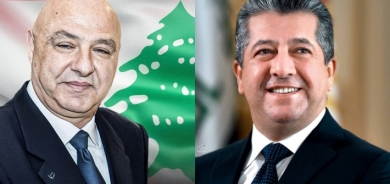SNC chief calls for arming Syria rebels amid U.N. fears of ‘imminent battle’ in Aleppo

Syrian National Council chief Abdel Basset Sayda also said that the opposition will discuss a proposed transitional government with rebel forces.
“We want weapons that would stop tanks and jet fighters. That is what we want,” he said following talks in Abu Dhabi as regime forces launched an all-out assault on the northern city of Aleppo.
“There should be relief support, but also support that allows this people to defend itself against the machine of killing,” he said.
Sayda pointed out that the opposition needs a minimum of $145 million monthly to provide basic needs, while it has received only $15 million over several months.
He thanked oil-rich Saudi Arabia for organising a five-day fundraising campaign which concluded on Friday after collecting over $72 million.
Sayda meanwhile said that any future plan should not include an amnesty to the Syrian leader, saying he should be put on trial.
“There are massacres being committed. We believe Bashar al-Assad should be tried. He is a criminal and should not be given a shelter,” he added.
But Russia played down speculation that it might offer Assad asylum, with Foreign Minister Sergei Lavrov saying on Saturday Moscow had no such agreement and was not even thinking about it.
The SNC chief said the council would discuss a proposed transitional government with rebel groups on the ground, adding that its leader should be someone who had been committed to the uprising from the start, in an apparent rejection of giving General Manaf Tlass, who defected earlier this month, a leading role.
“We are studying the idea (of transitional government) and we will contact all forces on the ground in Syria,” he said.
The leader should be an “honest and patriotic person... committed to the objectives of the Syrian revolution since its beginning,” he said.
Sayda said that future diplomatic action against the regime of Assad will be through the U.N. General Assembly in September.
“Next move should be taken outside the U.N. Security Council... We should go to the General Assembly,” he said as Russia and China continue to block punitive measures against Assad through the U.N. Security Council.
Sayda also warned of “massacres plotted by the regime” against Aleppo, holding “brothers and friends responsible if they do not act.”
“Imminent battle”
Syrian opposition sources said helicopters from Assad's military pounded a rebel-held part of the city on Saturday and armoured units were positioned for an onslaught that could determine its fate.
U.N. special envoy Kofi Annan expressed similar concern and said he feared an “imminent battle” for Aleppo.
“I am concerned about reports of the concentration of troops and heavy weapons around Aleppo, in anticipation of an imminent battle,” Annan said in a statement.
“The escalation of the military build-up in Aleppo and the surrounding area is further evidence of the need for the international community to come together to persuade the parties that only a political transition, leading to a political settlement, will resolve this crisis.”
The Syrian Observatory for Human Rights, an opposition monitoring group, reported helicopter attacks on Aleppo's central Salaheddine district and fighting elsewhere in the city.
“Helicopters are participating in clashes at the entrance of Salaheddine district and bombarding it,” it said.
One opposition activist said he had seen tanks and armored troop carriers heading for the district.
On the approaches to Aleppo from the north many villagers were still shopping or tending their fields. But fighters from the rebel Free Syrian Army were also in evidence.
One man in his 40s, carrying his family on a motorcycle, said he was fleeing the fighting in the city.
“We are living in a war zone,” he told Reuters. “I and my relatives are just going back and forth, trying to stay away from the fighting. We left Aleppo when we saw smoke and helicopters firing.”
The battle for the city of 2.5 million people is seen as a crucial test for a government that has committed major military resources to holding control of its two main power centers, Aleppo in the north and the capital Damascus.
Reuters













